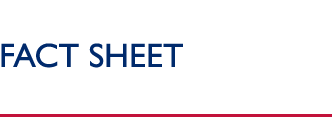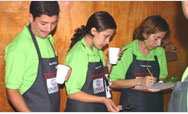 |
|
 |
 |
|
 |
 |
 |
USAID Information:
External Links:
|
|
 |
 |
|
Humanitarian Assistance to Haiti
WASHINGTON, DC 20523
PRESS OFFICE
http://www.usaid.gov
Press: (202) 712-4320
Public Information: (202) 712-4810
2004-006
FOR IMMEDIATE RELEASE
February 23, 2004
On Tuesday, February 24, 2004, USAID will dispatch a three-person team to Haiti. The team will work closely with the Embassy, USAID Mission, and non-government organization (NGOs) partners to assess humanitarian conditions and monitor and coordinate the provision of humanitarian assistance.
The ongoing political turmoil and economic instability in Haiti have created a potential humanitarian crisis, and have affected numerous aspects of development such as food security, health, nutrition, water and sanitation. While sufficient food stocks are currently in-country and no immediate food crisis exists at present, this could change quickly in coming weeks, especially in the north, due to insecurity and disruptions of transport and distribution. The U.S. Agency for International Development (USAID) has more than 11,000 metric tons of food for direct distribution in country for food assistance development programs.
The U.S. Government through USAID is Haiti's largest bilateral donor. In 2003, USAID contributed $71 million. Through fiscal years 1995-2003, USAID provided a total of $850 million in direct bilateral assistance. For FY04, USAID has planned $52 million in assistance to programs ranging from health, democracy and governance, education and economic growth. To ensure that assistance goes to those Haitians most in need, USAID assistance is channeled principally through NGO's. The U.S. provides food and food-related assistance directly and indirectly to 650,000 poor Haitians.
USAID is the lead donor in providing assistance to combat the spread of HIV/AIDS in Haiti by working through U.S. private health organizations and Haitian NGO's. Haiti has also been singled out by President George W. Bush as a priority country for preventing Mother to Child Transmission of HIV/AIDS, resulting in several million dollars more each year of funding to help mothers and children. U.S. assistance works to alleviate poverty, illiteracy, and malnutrition and promotes respect for human rights and the rule of law.
A major humanitarian concern at present is the breakdown in the provision of basic health services, particularly in the north. The two main hospitals in Port-au-Prince lack supplies and drugs and are barely functioning. Similar disruptions are occurring in Gonaïves, Haiti's fourth largest city, and other areas.
CARE, a USAID recipient, has distributed 520 metric tons (MT) of food commodities to the population of Gonaïves. The International Committee of the Red Cross (ICRC) and CARE have negotiated limited safe passage to Gonaïves. World Vision International (WVI) reports that there is no food emergency in Hinche, due to a good December harvest. Scarcity of fuel is a major problem in many areas and has hindered humanitarian operations, mainly in the north.
CARE reports that there is a potable water crisis in Gonaïves due to the lack of fuel. The Haitian electrical company does not have enough fuel to continue to supply Gonaïves with potable water. Although CARE has food stocks in the port of Port-au-Prince, the organization lacks fuel for transportation, particularly for food distributions in the north.
On February 18, 2004, U.S. Ambassador to Haiti James B. Foley issued a disaster declaration due to the ongoing complex humanitarian emergency in Haiti. USAID provided $50,000 to support the transport and distribution of emergency relief supplies, including 12 medical kits and three surgical kits, valued at approximately $87,000. Each medical kit is equipped to serve 10,000 people for approximately three months.
In addition, USAID approved $400,000 in funding for the Pan American Health Organization (PAHO) to purchase additional medical supplies and to conduct emergency relief activities in Haiti. To date, a total of $537,000 has been allocated for transport and distribution of medical supplies, as well as the purchasing of medical equipment and emergency health activities.
For more information about USAID's ongoing efforts in Haiti, visit
www.usaid.gov/haiti.
The U.S. Agency for International Development has provided economic and humanitarian assistance worldwide for more than 40 years.
Back to Top ^
|


